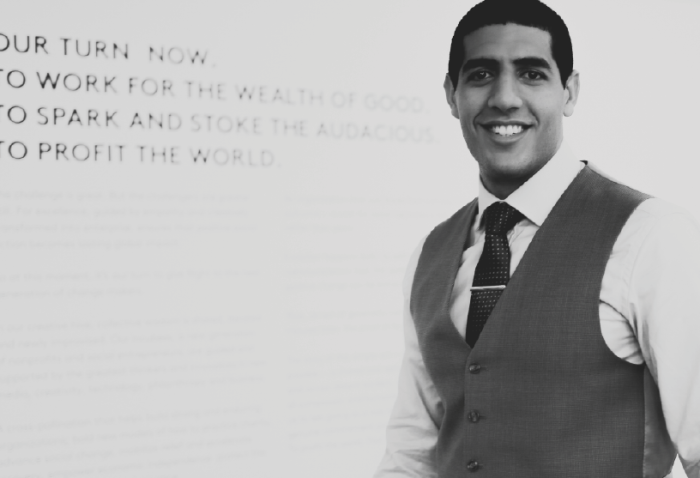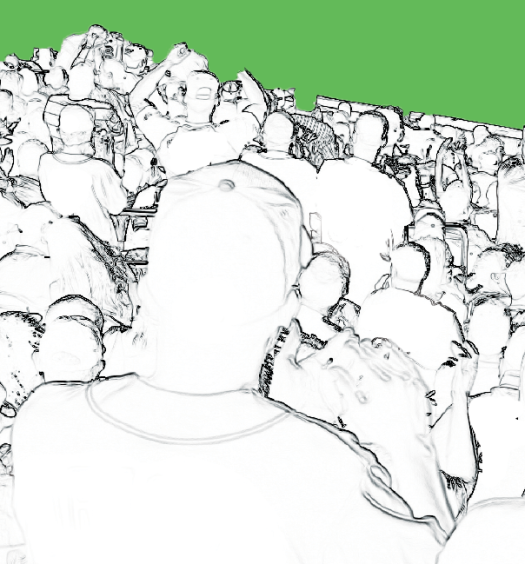Karim Abouelnaga: Founder and CEO of Practice Makes Perfect [Issue 03 Exclusive]

As an inner city child growing up in Long Island City, Queens, Karim Abouelnaga faced the harsh realities of the world at a young age, but with a tireless desire to succeed, he transformed his life for the better. Equipped with an Ivy League education and limitless compassion, Karim is bringing the same opportunities to other inner city children through Practice Makes Perfect.
Raised by immigrant parents who knew very little about the public education system, Karim went through some of New York City’s most struggling public schools. Dealing with the hardship of his father’s passing when he was just 15, he and his brothers had to take upon themselves the responsibility to help pay rent by selling candy for their mother.
“My early struggle was the inevitable result of the limited resources and guidance available in my community,” he shared. “Where I grew up, most poor and minority children forfeit their dreams because they have difficulty marshaling resources to succeed in the classroom. My path was different.”
Karim found relief in local non-profits, such as New York Needs You and Rewarding Achievement, which gave him the chance to escape a dead-end life. By giving him the chance to work with college graduate mentors and role models, these non-profit organizations provided him with the tools needed to invest in his success. Having that help and support, Karim felt it was his moral obligation to address this problem.
A major problem in education reform is that many of the initiatives to improve the public education system are done from an “outside looking in” perspective. The most admirable education reformers have never attended or gone through an inner-city public school themselves. Karim stated, “In 2009, McKinsey & Company estimated that the achievement gap was costing our economy $310-$525 billion in GDP each year, which is the economic equivalent of a permanent national recession. The United States Census published a report forecasting that the number of minority students, who are most affected by the achievement gap, would comprise more than 50 percent of the school-aged population by 2023, which exacerbates the disparities in our economy.” Helping to shrink the achievement gap could not only help the economy, but also (and more importantly) help students achieve their goals.
During his freshman year of college at Cornell University, Karim researched the achievement gap in hopes of winning a scholarship. His findings showed that there is a clear gap between low and high income youth due to unequal access to Summer learning opportunities. When students go on break, they forget most of what they learned, and when the new school year arrives, teachers spend a significant amount of time re-teaching the material from the previous year. This is both an economic loss and social injustice. If children are not engaged over the Summer, the ten-month school year ends up transforming into a five-month school year.
A year later, these discoveries served to become the foundation for what would become his own program. Karim and a group of friends started Practice Makes Perfect, as an opportunity to go beyond just talking about education inequalities to create actual change in low income communities.
Summer is an excellent learning opportunity that is currently being wasted. In many cases, kids take that time for granted and (without adult supervision) are left to get in trouble. Karim’s goal is to have Practice Makes Perfect become the national Summer school model, and he hopes to scale the benefits that Practice Makes Perfect is creating for every stakeholder. This goal goes hand-in-hand with his vision to change the current cultural norm around attending Summer school by implementing a Practice Makes Perfect Summer program for students in low income neighborhoods.
Practice Makes Perfect’s core is the near-peer model. This unique multi-relational approach pairs academically struggling elementary and middle school students with high-achieving students and mentors that are four grades older and from the same inner-city neighborhoods. The scholars and mentors are under the instruction of trained college interns and supervision of certified teachers for a five-week, full-day academic program. Practice Makes Perfect stresses relationships as being the key ingredient in a good recipe for success. They pride themselves on the trust and relationships that they constantly build with their students and mentors, which translates into academic gains.
Practice Makes Perfect has not only been a life-changing experience for the students and mentors involved, but also for Karim himself. He shared, “Running my own organization has been a transformative experience. If you are open to feedback and the ideas of others, you will learn a lot about who you are. I can’t imagine how I lived my life not fully understanding some of the things I know about myself today. The true learning about who we are will happen time and time again, you will make decisions that have no right answer. The only judgment tool will be the values that you have set or the values that you are going to set.”
Practice Makes Perfect hopes to change the conversation by eliminating the Summer learning loss and helping students return to school the following year one month ahead, rather than three months behind. “Changing the conversation is starting the conversation about the dangers of the Summer slide. One day, all students nationwide will have access to learning resources over the Summer,” he explained. “Then, we can truly tackle the academic achievement gap that plagues our country.”
Practice Makes Perfect has provided Summer learning opportunities to over 550 socioeconomically disadvantaged students across New York, matching them with near-peer mentors that serve as a lifelong resource.
In order to bring awareness and support for Summer learning programs, readers need to spread the word around their communities. Many people do not realize that a lack of free or affordable Summer learning opportunities is even an issue. One way to help bring awareness is to write to local elected officials while stressing community needs, wants, and benefits from access to Summer learning opportunities. Another way to help is by advocating for these public programs at City Hall, school district meetings, etc. Finally, donating and volunteering can help these programs acquire the necessary resources needed to further their cause. Start the change. Help, inspire, and become opportunity makers. www.practicemakesperfect.org



